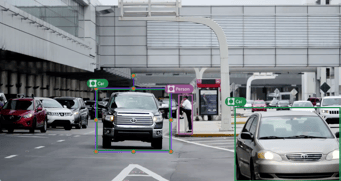Image annotation is an important task when training a computer vision model. Here are common misconceptions about image annotation for computer vision.
CloudFactory Blog

Quality data is the lifeblood of great computer vision applications. Here are 6 best practices for creating your own custom data sets for computer vision.

Great computer vision applications require a lot of quality visual data. Here's how you can acquire quality data sets for computer vision applications.

Agriculture data is complex. Annotating agtech data often requires help from agronomists. We help Hummingbird Tech overcome that AI product development hurdle.

AI is transforming healthcare; it arms practitioners to make better decisions & fewer errors. Here’s how image annotation in Medical AI makes it possible.

Images and videos are both means to an end to annotate visual data. Each may have its own unique process but in the end individual frames are being annotated on a meta data level. ...
-2.png?width=346&height=181&name=Image%20Resizing%20for%20Blog%20and%20Social%20(13)-2.png)
Humans are the key to developing the datasets and algorithms required to train intelligent virtual assistants so they can mimic human intelligence.
.png?width=1563&height=1563&name=Untitled%20design%20(38).png)




.png?width=1563&height=1563&name=Untitled%20design%20(30).png)



.png?width=1563&height=1563&name=Untitled%20design%20(33).png)


.png?width=1563&height=1563&name=Untitled%20design%20(34).png)







